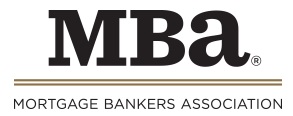WASHINGTON, D.C. – July 14, 2011 – (RealEstateRama) — Henry V. Cunningham Jr., CMB, a member of the Mortgage Bankers Association’s (MBA) Board of Directors and Chairman of MBA’s Residential Board of Governors (RESBOG), testified today before the House Financial Services Subcommittee on Insurance, Housing and Community Opportunity at a hearing titled, “Mortgage Origination: The Impact of Recent Changes on Homeowners and Businesses.”Below is Mr. Cunningham’s oral statement before the subcommittee, as prepared for delivery.
“My testimony today, on behalf of the Mortgage Bankers Association, comes at a time of great change in our industry. The recent economic crisis has led many lenders to alter their practices and return to a more traditional way of originating mortgages.
“As an independent mortgage banker operating in North Carolina, I can tell you first hand that these changes are having a profound impact on our industry, consumers’ access to credit, and our overall economy.
“Back in April, I testified before the Capital Markets Subcommittee on the proposed risk retention rule. That rule, and the Qualified Residential Mortgage definition, continue to be MBA’s top focus. Simply put, the rule proposed by the regulators would make credit more expensive and less available, especially for minority, low-to-moderate, and first-time homebuyers, with little impact on reducing defaults. It’s a rule that needs to be pulled back and resubmitted.
“There’s a parallel regulatory effort that I fear could be just as harmful to consumers and lenders. The Federal Reserve has proposed new rules implementing Dodd-Frank’s “ability to repay” provisions. These rules would prohibit lenders from making mortgages unless they make a reasonable determination that the consumer has the ability to repay the loan.
“Dodd-Frank allows lenders to meet this requirement by originating a Qualified Mortgage, or QM. Our concern is the rule offers a “rebuttable presumption” as an alternative to a true safe harbor. In order for the QM to work, lenders need an iron-clad safe harbor, with bright line standards that can be easily proven. If the standard is uncertain, lenders will act more conservatively. If, however, there is a strong safe harbor, borrowers will enjoy greater access to credit and lower costs.
“MBA believes the QM and QRM need to be harmonized. Both were designed by Congress to achieve the same purpose of ensuring better, more sustainable lending. Regulators should strive to achieve definitions that are essentially the same. Because the QRM as proposed would exclude too many borrowers from the most affordable loans, MBA believes the QM proposal is a much better starting point for both sets of rules.
“Another issue of importance is the ongoing implementation of the SAFE Act. This is a well intended law, but it has placed considerable stress on state regulated lenders who operate in multiple states or who would like to hire registered loan originators working for federally regulated lenders. Both problems could be resolved if the states adopted transitional licensing so that out-of-state or federally-registered originators could work for a period of time as they qualified for state licensing. Furthermore, we strongly oppose states covering servicers under the definition of loan originators. This is something Congress never intended.
“We also call your attention to the difficulties we have had with the recent loan officer compensation restrictions from the Federal Reserve. The rule was finalized with too little guidance and has led to great confusion. We urge the CFPB, which is taking over TILA responsibility, to review this rule and listen closely to the concerns of industry before it moves to implement similar provisions under Dodd-Frank.
“Finally, MBA is grateful to see RESPA and TILA come under one roof. We hope the CFPB also draws on the expertise of the housing industry as it merges these two disclosures. Lenders work with consumers every day and have extensive experience conveying information to consumers in the most useful manner.
“Madame Chairwoman, I’m concerned that this wave of regulation – while well intended – will further tighten credit and smother a fragile housing recovery.
“Cunningham and Company is not a big lender. We didn’t cause the housing crisis. Last year, we originated $440 million in mortgages – 97 percent of which were prime, fixed-rate loans. We have been in business for twenty-one years and have 88 employees.
“We’re certainly not too big to fail, but sometimes I feel we may be too small to comply.
“I would urge this panel to continue providing strong oversight – and act where necessary – to ensure these new rules are being implemented in a manner that allows consumers to continue to enjoy the benefits of competition that smaller independent firms like Cunningham and Company provide.”
###
The Mortgage Bankers Association (MBA) is the national association representing the real estate finance industry, an industry that employs more than 280,000 people in virtually every community in the country. Headquartered in Washington, D.C., the association works to ensure the continued strength of the nation’s residential and commercial real estate markets; to expand homeownership and extend access to affordable housing to all Americans. MBA promotes fair and ethical lending practices and fosters professional excellence among real estate finance employees through a wide range of educational programs and a variety of publications. Its membership of over 2,200 companies includes all elements of real estate finance: mortgage companies, mortgage brokers, commercial banks, thrifts, Wall Street conduits, life insurance companies and others in the mortgage lending field. For additional information, visit MBA’s Web site: www.mortgagebankers.org











